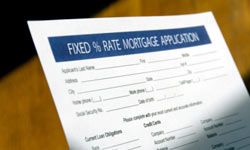A distressed property is any property whose owner is in default on the mortgage. In the late 2000s, sales of these distressed homes became extremely common. In fact, between 2008 and 2011, one third of home sales were distressed sales [source: [Gibbs]. Of course, just how many distressed homes are on the market varies by market conditions. Regions where home prices have plummeted, like California and Florida, tend to have more distressed homes, while areas with more stable home sales have fewer [source: Gibbs].
In a short sale, the final price of the home is less than the total amount owed to the lender, but the transaction closes before the lender forecloses, so you negotiate with the owner and the lender. A foreclosure is a home that has been repossessed by the lender for lack of payment. Foreclosed properties are either sold at auction or put on the open market as REO (real estate owned) listings.
Advertisement
If you're on the market for a home, and you'd like to get a deal, a distressed home is an option to look into. Banks want these homes off the liability column of their books, so they usually list them for comparatively lower prices [source: Re/Max]. But, there is a limit to what you can save, especially as competition for dirt cheap houses tends to spark bidding wars among hungry buyers [source: McQueen]. Distressed homes aren't easy to deal with, either. They are sold "as-is," usually need extensive repairs, and require a lot of time and paperwork. So, keep reading for tips on how to come out of a distressed property deal on top.




